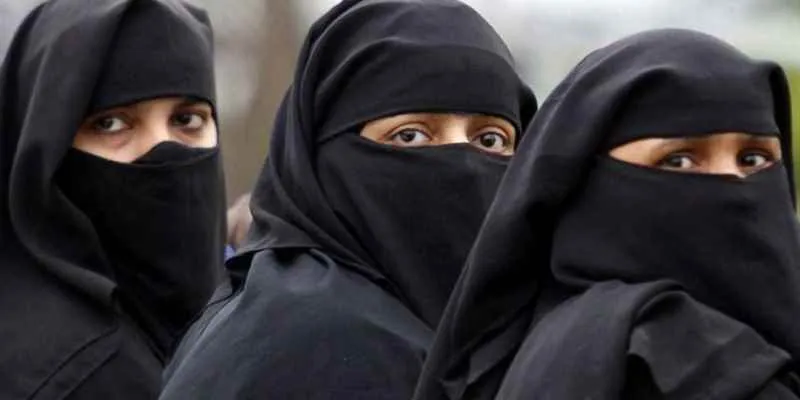High Court lifts ban imposed on women entering Haji Ali dargah
The Bombay High Court lifted the ban imposed on women from entering the sanctum of Haji Ali dargah at Bombay, saying it contravenes the fundamental rights of a person.

A division bench of Justices V M Kanade and Revati Mohite Dere said,
We hold that the ban imposed by the Dargah Trust, prohibiting women from entering the sanctum sanctorum of the Haji Ali Dargah contravenes Articles 14, 15 and 25 of the Constitution of India. Women should be permitted to enter the the sanctum sanctorum at par with men.
Under these Articles, a person has the fundamental right to practice any religion he or she wants. They prohibit discrimination on grounds of religion, gender and so on, and provide freedom of conscience and free profession, practice and propagation of religion.
The court has, however, stayed its order for six weeks following a plea by Haji Ali Dargah Trust, which wants to challenge it in the Supreme Court. The bench allowed a PIL filed by two women, Zakia Soman and Noorjehan Niaz, from NGO Bharatiya Muslim Mahila Andolan, challenging the ban on women's entry into the sanctum sanctorum of the dargah from 2012.
The State government and the Haji Ali Dargah Trust will have to take proper steps to ensure safety and security of women at the said place of worship, the court said.
The bench held that the trust has no power to alter or modify the mode or manner of religious practices of any individual or any group. It also noted that the right to manage the Trust cannot override the right to practice religion itself. The court said in its 56-page judgement,
The trust has no right to discriminate entry of women into a public place of worship under the guise of 'managing the affairs of religion' under Article 26 and as such, the state will have to ensure protection of rights of all its citizens guaranteed under the Constitution, including Articles 14 and 15, to protect against discrimination based on gender
The court refused to accept the arguments of the trust that allowing women in close proximity to the grave of male Muslim saint was sin in Islam. The trust had also quoted and submitted certain verses from the Quran to support its claim.
Simply making the aforesaid statement and quoting verses are not sufficient, more particularly, when women were being permitted to enter the sanctum sanctorum up to 2012. There is nothing in any of the aforesaid verses which shows that Islam does not permit entry of women at all, into a dargah/mosque and that their entry was sinful in Islam, the court said.
The bench noted that the petitioners' counsel Raju Moray has, in fact, quoted certain verses from the Quran which show that Islam believes in gender equality and that the ban was uncalled for. The court also held that one has to determine if a practice like the one that has been challenged in this petition is an essential part of Islam.
Essential part of a religion means the core beliefs upon which a religion is founded and essential practice means those practices that are fundamental to follow a religious belief. The test is to determine if a practice is essential to the religion and to find out if whether the nature of the religion would change without this practice, the court said.
It said that the trust has not been able to justify the ban legally or otherwise, and hence it cannot be said that the prohibition is an essential and integral part of Islam and if taking away that part of the practice would result in a fundamental change in the character of the religion or belief. The court also refused to accept the justification of the trust that the ban was imposed for safety and security of the women, in particular, to prevent sexual harassment of women at places of worship. The trust had claimed that the ban was in keeping with an order of the Supreme Court wherein stringent directions have been issued to ensure that there is no sexual harassment to women at places of worship. The court, however, noted that this submission by the trust is completely "misplaced and misconceived and is out of context".
The trust under the guise of providing security and ensuring safety of women from sexual harassment, cannot justify the ban and prevent women from entering the sanctum sanctorum of the Haji Ali Dargah, the court said.
It added that the trust is always at liberty to take steps to prevent sexual harassment of women, not by banning their entry into the sanctum sanctorum, but by taking effective steps and making provisions for their safety and security for example by having separate queues for men and women, as was done earlier.
It is also the duty of the state to ensure the safety and security of the women at such places. The state is equally under an obligation to ensure that the fundamental rights guaranteed under Articles 14, 15 and 25 of the Constitution are protected and that the right of access to the sanctum sanctorum of the Haji Ali Dargah is not denied to women, the court said.
The bench noted that the aims, objectives and activities of the Haji Ali Dargah Trust are not governed by any custom or tradition.
The objects of the Trust are in respect of purely secular activities of a non-religious nature, such as giving loans, education, medical facilities, etc. Neither the objects nor the scheme vest any power in the trustees to determine matters of religion, on the basis of which entry of woman is being restricted, the court said.
The court held that the trust was a public charitable trust and hence open to people all over the world irrespective of their caste, creed or gender. The high court had in June this year reserved its verdict on the petition. The PIL states that gender justice is inherent in the Quran and the decision contravenes the Hadith, which proves that there is no prohibition on women visiting graves.
Also read : Curb lifted, Women can now enter the inner sanctum of Kolhapur Mahalaxmi temple
The Maharashtra government had earlier told the court that women should be barred from entering the inner sanctorum of Haji Ali Dargah only if it is so enshrined in the Quran. The ban on women's entry cannot be justified if it is on the basis of an expert's interpretation of the Quran, the then Maharashtra Advocate General Shrihari Aney had argued. The dargah trust had defended its stand, saying that it is referred in Quran that allowing women close proximity to the dargah of a male saint is a grievous sin.
Advocate Shoaib Memon, appearing for the trust, had earlier said,
Women are not allowed inside mosques in Saudi Arabia. They are given a separate place to pray. We (trust) have not barred women. It is simply regulated for their safety. The trust not only administers the dargah but also manages the affairs of religion.







